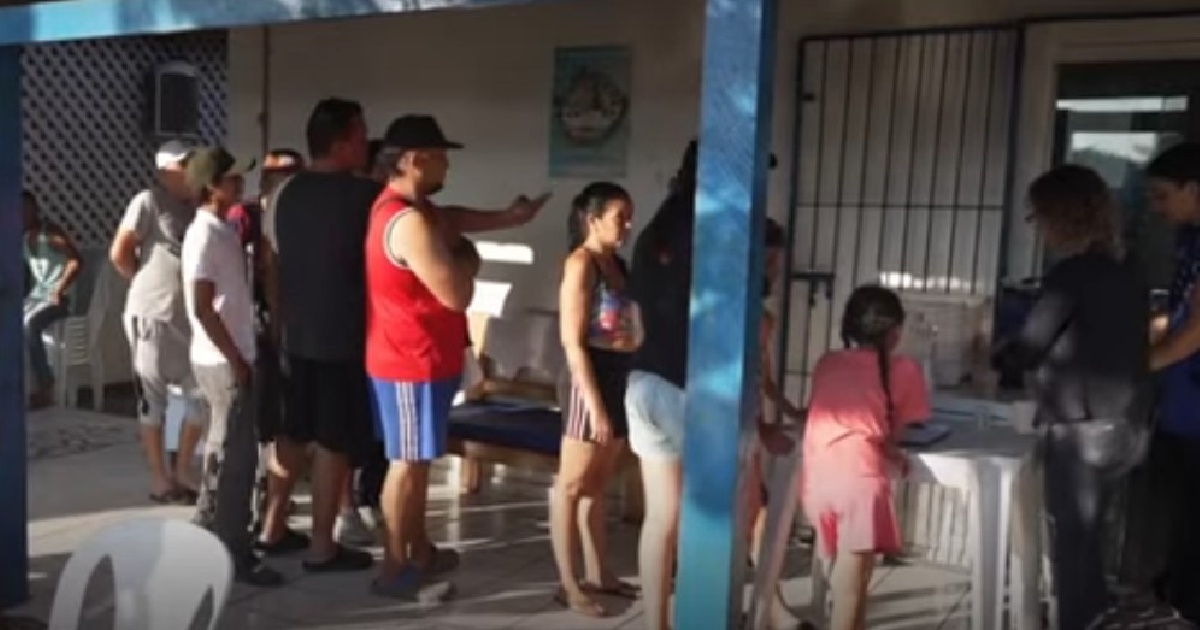The economic crisis in Cuba has driven hundreds of thousands of its residents to embark on perilous and lengthy journeys, seeking temporary refuge in remote and rugged locations in search of a better life, preferably in the United States. Such is the case of Miguel Hidalgo, a Cuban who currently resides in a shelter deep in the Brazilian Amazon.
At 52 years old, Hidalgo is one of many Cubans who have left their homeland in what is considered the largest migratory wave in the island's history. Years ago, he attempted to reach the United States. He departed Cuba for Suriname, then arrived in Brazil, and has no immediate plans to leave the country, according to a report by the American news agency AP.
Hidalgo is among dozens of immigrants housed in shelters in the state of Acre, specifically in its capital city, Rio Branco, near the Bolivian border. "I like Brazil. I haven't been here long, but people don't hold prejudices against me; they are kind," Hidalgo told AP. "I want to live like a human being. I don't ask for riches. I want to live peacefully and help my family in Cuba," the Cuban migrant asserted, as seen in a photo from the report while he had a glass of milk for breakfast on June 22.
AP did not provide further details about Hidalgo or the shelter where he lives but did describe the precarious conditions of another shelter located in the city of Assis Brasil, near the Peruvian border. The wooden building has only six rooms, accommodating 45 people of various nationalities. The report did not specify whether there are also Cuban immigrants in that shelter.
Gladson Camelli, the governor of Acre—the westernmost state of Brazil—expressed his concern to AP about the potential for an increased influx of South American immigrants in the near future. "Our government has tried to do its part in humanitarian support," he stated.
Several immigrants sheltered in Acre, interviewed by the news agency, mentioned that they decided to pause their journey to the United States and remain in Brazil after the administration of President Joe Biden issued an executive order suspending asylum for migrants crossing the border with Mexico illegally.
Last week, the U.S. government reported that arrests for illegal crossings from Mexico had dropped by more than 40% since the temporary suspension of asylum processing at the border on June 5. AP noted that for the first time during Biden's term, fewer than 2,400 arrests per day were recorded.
In May, 18,988 Cubans arrived on U.S. soil, most via the land border separating the country from Mexico, according to monthly data published by the Customs and Border Protection (CBP).
Understanding the Cuban Migrant Crisis
Here are some frequently asked questions and answers to help you understand the complexities of the Cuban migrant situation and the broader implications.
Why are so many Cubans leaving their homeland?
The primary reason is the ongoing economic crisis in Cuba, which has led to widespread poverty and lack of opportunities, pushing many to seek better living conditions abroad.
What challenges do Cuban migrants face during their journey?
Cuban migrants often face perilous journeys through remote and rugged terrains, legal and immigration hurdles, and the constant uncertainty of finding a safe and stable place to live.
How has the U.S. government's policy impacted Cuban migrants?
The recent executive order by President Joe Biden suspending asylum for illegal border crossers has led many Cuban migrants to pause their journey to the U.S. and seek refuge in other countries like Brazil.
What is the current status of Cuban migrants in Brazil?
Many Cuban migrants, like Miguel Hidalgo, are currently housed in shelters in the state of Acre, Brazil, and are attempting to build a stable life despite the challenging conditions.
